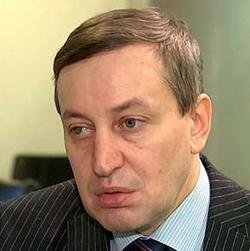'Not a disaster, but it's not good news': CBR analysts predict price increase and economic slowdown
The 2% VAT increase is to blame for it
Central Bank analysts have assessed the pros and cons of the VAT increase: due to the increase in tax by 2%, the government will find money for the implementation of the May Decree, but it will casue a jump in prices and, perhaps, economic slowdown. According to analysts, the change in VAT rate can add to inflation up to 1,25% and take away up to 0,5% from GDP. Read more details in the material of Realnoe Vremya.
Plus inflation
By increasing the VAT rate from 18% to 20% from 1 January 2019, the government will find most of the money for the strategic part of the May Decree — these costs are estimated at 8 trillion rubles in 2018-2024. But for this, the population will have to pay by inflation growth. This is claimed by analysts of the Central Bank of Russia in the bulletin ''What trends tell'' (not necessarily reflects the official position of the regulator).
According to the bulletin, the VAT rate covers about 70% of the entire consumer basket. At the very most, the rate increase of 2% may add 1,16% to the inflation. But usually producers do not shift the tax burden entirely to prices, so the average impact on inflation is estimated to be between 0,8% and 0,95%.
However, in addition to the direct effect, there may be secondary one, analysts say. They are connected with the growth of inflation expectations. Taking into account these effects, the overall impact of the VAT increase on inflation can be +0,8-1,25%. The price increase will be tangible in 3-6 months after the tax increase, most likely, within one quarter. This is evidenced by the experience of reducing VAT in Russia in 2004, as well as increasing sales tax in Japan in 2014.
Whether the Central Bank should respond to tax changes depends on the stability of inflation expectations and the strength of secondary effects, the authors of the bulletin state. In the Czech Republic, before the tax increase, the regulator considered the secondary effects insignificant and did not react in any way; the national banks of the UK, Poland and Romania considered them an argument in favour of a more stringent monetary policy. ''In Russia, inflation expectations are not anchored, so there is a high probability of secondary effects. Therefore, the Bank of Russia at the last meeting pointed to the growth of taxes as an important reason for maintaining the key rate,'' the analysts remind.
In June, the growth rate of consumer prices temporarily slowed to 2,3% year-on-year, but in July they are likely to return to the level of previous months (2,4% in March-May). Now the inflation rate is still below the target of the Central Bank of 4%, but the gap with the goal has been significantly reduced — in the second quarter it was minimal since the beginning of 2017. Inflation expectations are increasing. The reason, in addition to the announced increase in VAT, is the increase in gasoline prices and the earlier weakening of the ruble. The growth of long-term inflation expectations may delay further reduction of interest rates, the authors of the bulletin claim.
Minus GDP
Inflation growth is not the only consequence of the VAT increase. The second possible consequence is an economic slowdown. Practice shows that changes in consumption taxes are quickly reflected in GDP growth. According to the Central Bank, for Russia, an increase in the rate of such taxes by 1% can mean a decrease in GDP by 0,9-1%. The direct negative effect of the 2% VAT increase threatens to be minus 0,5% from GDP, but the total effect may even be positive, given the increase in spending according to the May Decree.
Estimates of Central Bank analysts on inflation more or less similar to the truth, says economist, Associate Professor at Ranepa Sergey Khestanov. Today, about three-quarters of all goods are subject to the 18% VAT. Based on this, with the increase in the rate by 2%, the price growth can be about 1,5% — which, given the error, roughly coincides with the vision of the regulator.
 However, Khestanov considers the forecasts for economic growth deceleration to be too positive: ''The impact on GDP should not be underestimated; most likely, the situation will be worse than the Central Bank expects. I think a reasonable estimate is minus 1% (excluding additional effects, which we do not yet understand). It's certainly not a disaster, but the kind of thing that doesn't make anyone happy.''
However, Khestanov considers the forecasts for economic growth deceleration to be too positive: ''The impact on GDP should not be underestimated; most likely, the situation will be worse than the Central Bank expects. I think a reasonable estimate is minus 1% (excluding additional effects, which we do not yet understand). It's certainly not a disaster, but the kind of thing that doesn't make anyone happy.''
According to the experience of countries that have recently increased VAT (for example, Georgia), we can say that the increase in the rate by 2% can move inflation up by 0,5-0,75%, said Anton Tabakh, chief economist at Expert RA Agency; in general, much will depend on the actions of the Central Bank.
Not only the Central Bank is talking about the consequences of the VAT increase. The Ministry of Economic Development of the Russian Federation in early July said that by the end of this year the inflation will accelerate to 3,1%, and a year later it will go beyond the target of the Central Bank, amounting to 4,3%. In addition, the ministry reduced the forecast for GDP growth in 2018 from 2,2% to 1,9%, in 2019 — to 1,4%. Expert RA also reduced the forecast for GDP growth due to the increase in VAT. Now, as well as the Ministry of Economic Development, it expects that economic growth in 2019 will not exceed 1,4%.